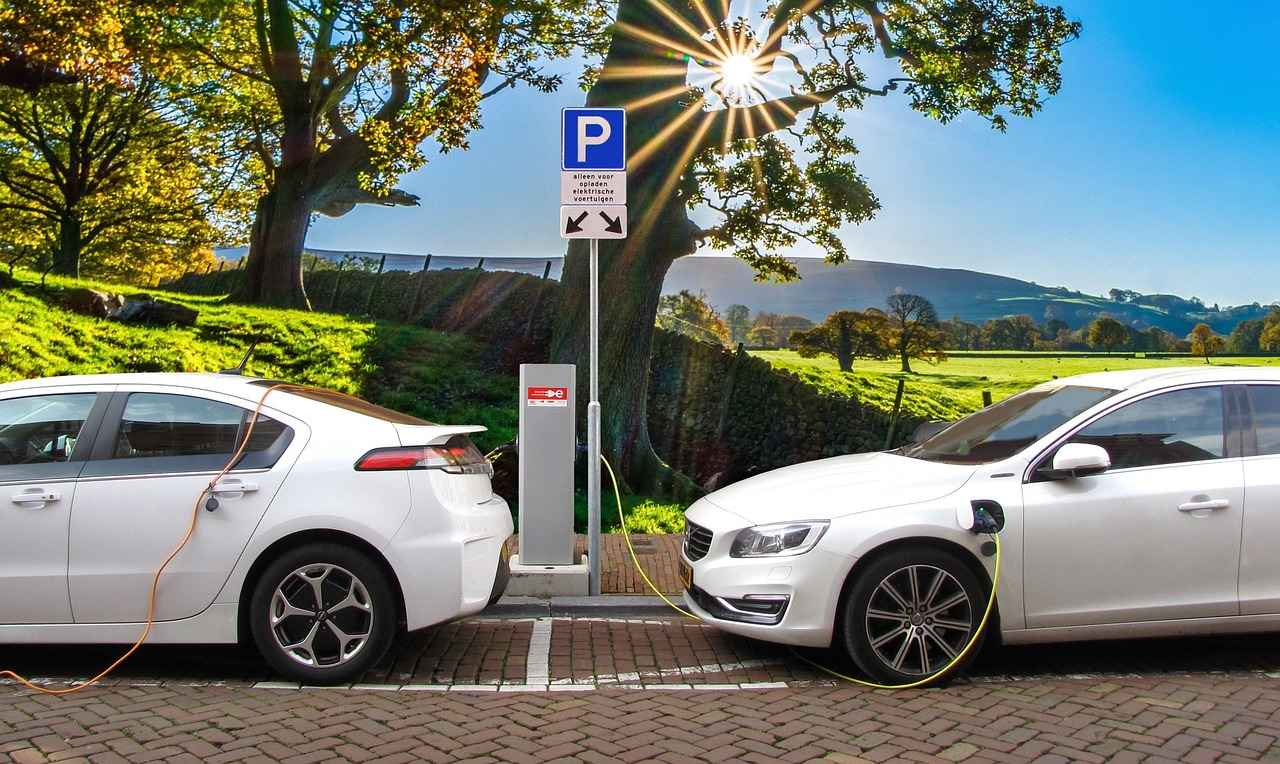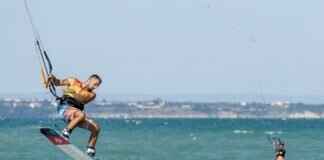As the popularity of electric bikes continues to rise, finding the most affordable and high-quality options in 2025 can be overwhelming. This guide aims to simplify your search by providing essential tips, highlighting popular models, and directing you to the best places to shop for unbeatable deals.
Why Choose Electric Bikes?
- Eco-Friendly: Electric bikes reduce your carbon footprint.
- Cost-Effective: Save money on fuel and maintenance.
- Health Benefits: Enjoy cycling while getting a workout.
Top Electric Bike Brands in 2025
Several brands have emerged as leaders in the electric bike market, known for their innovation and reliability. Here are some top contenders:
- Brand A: Renowned for cutting-edge technology and competitive pricing.
- Brand B: Offers a blend of style and functionality.
How to Find the Best Deals
- Online Shopping: Explore various e-commerce platforms for discounts.
- In-Store Shopping: Visit local bike shops for personalized advice and potential sales.
Seasonal Sales and Promotions
Timing your purchase can lead to significant savings. Keep an eye out for seasonal sales, especially during holidays and special events.
Understanding Electric Bike Components
Familiarizing yourself with key components will enhance your purchasing decision:
- Battery Types: Different batteries affect range and performance.
- Motor Power: Choose a motor that meets your riding needs.
Maintenance Tips for Electric Bikes
To ensure longevity, follow these maintenance tips:
- Regular Checks: Inspect tires, brakes, and battery regularly.
- Battery Care: Follow best practices for charging and storage.
Conclusion: Making an Informed Purchase
By understanding the electric bike market in 2025, you will be better equipped to make an informed purchase. Use the insights from this guide to find the best deals and enjoy your new ride!

Why Choose Electric Bikes?
Electric bikes, often referred to as e-bikes, are rapidly gaining popularity for a multitude of reasons. With the increasing awareness of environmental issues and personal health, more individuals are considering the switch from traditional bicycles or cars to electric alternatives. Below are some compelling reasons to choose electric bikes:
- Eco-Friendliness: E-bikes are a sustainable mode of transportation. They produce zero emissions during operation, helping to reduce air pollution and your carbon footprint. By opting for an electric bike, you contribute to a cleaner environment.
- Cost Savings: Electric bikes can significantly cut down on transportation costs. With rising fuel prices, e-bikes offer a cost-effective alternative. You save on gas, parking fees, and maintenance costs associated with cars.
- Health Benefits: Riding an electric bike promotes physical activity. It encourages exercise while providing assistance during longer rides or uphill climbs. This balance makes it easier for individuals of all fitness levels to enjoy cycling.
- Convenience: E-bikes offer the convenience of faster commuting without the sweat. They allow you to navigate through traffic more efficiently and can often take you places where cars cannot, such as bike paths or narrow streets.
- Accessibility: Electric bikes make cycling accessible to a broader audience. They are particularly beneficial for those with physical limitations or those who may find traditional biking challenging.
Understanding these benefits can help you make an informed decision when considering your next mode of transport. By choosing an electric bike, you not only enhance your personal lifestyle but also contribute positively to the environment.

Top Electric Bike Brands in 2025
As the electric bike market continues to grow, several brands have emerged as leaders due to their reliability and innovation. In 2025, these brands are setting the standard for quality and performance, making them top choices for consumers looking to invest in electric bikes.
- Brand A: Renowned for its cutting-edge technology, Brand A offers a range of models that cater to different riding needs. Their focus on durability and user-friendly designs makes them a favorite among both casual riders and enthusiasts.
- Brand B: This brand is celebrated for its stylish designs and robust features. With a commitment to sustainability, Brand B integrates eco-friendly materials into their bikes, appealing to environmentally-conscious consumers.
- Brand C: Known for exceptional customer service, Brand C provides comprehensive warranties and support. Their bikes are equipped with advanced features such as smart connectivity and customizable settings.
- Brand D: This brand stands out for its focus on performance. With powerful motors and long-lasting batteries, Brand D bikes are perfect for those who prioritize speed and efficiency in their rides.
When considering an electric bike, it’s essential to evaluate the features and pricing of each brand. For example, Brand A’s models typically come with a competitive price point, while Brand B may offer premium features that justify a higher cost. Understanding these nuances can help you make an informed decision.
In conclusion, the electric bike market in 2025 offers a wealth of options. By focusing on brands that prioritize innovation and reliability, you can find a bike that not only meets your needs but also enhances your riding experience.
Brand A: Features and Pricing
When it comes to electric bikes, Brand A stands out for its innovative technology and affordable pricing. This brand has successfully combined performance and value, making it a popular choice among cyclists of all levels. In this article, we will explore the key features of Brand A’s most sought-after models, as well as their pricing structures.
Why Brand A is a Top Choice
- Advanced Technology: Brand A integrates cutting-edge technology into their bikes, ensuring a smooth and efficient riding experience.
- Competitive Pricing: The pricing of Brand A models is designed to be accessible, appealing to budget-conscious consumers without sacrificing quality.
- Durability: Built with high-quality materials, Brand A bikes are known for their longevity, making them a wise investment.
Popular Models from Brand A
| Model | Key Features | Price |
|---|---|---|
| Model A1 | High-capacity battery, lightweight frame, 28 mph top speed | $1,499 |
| Model A2 | Integrated GPS, smart connectivity, 25 mph top speed | $1,799 |
User Feedback
Customer reviews highlight the reliability and performance of Brand A bikes. Many users appreciate the comfortable ride and excellent customer service provided by the brand. This feedback reinforces Brand A’s reputation as a leader in the electric bike market.
In conclusion, Brand A offers a compelling combination of innovation and affordability, making it a top choice for electric bike enthusiasts. Their popular models, like Model A1 and Model A2, cater to various needs and preferences, ensuring that there is something for everyone.
Model A1: Specifications and Performance
The Model A1 is a standout in the electric bike market, offering a combination of cutting-edge technology and user-friendly features. With its sleek design and innovative specifications, it has become a popular choice for both commuting and leisure riding. In this section, we will delve into its battery life, speed, and overall performance to help you determine if this model aligns with your cycling needs.
Battery Life
- The Model A1 is equipped with a high-capacity lithium-ion battery that offers an impressive range of up to 60 miles on a single charge.
- Fast charging capabilities allow you to recharge the battery to 80% in just 2 hours, making it convenient for daily use.
Speed and Performance
- With a powerful motor that delivers speeds of up to 28 mph, the Model A1 ensures a thrilling ride while maintaining stability and control.
- Its lightweight frame and aerodynamic design contribute to enhanced performance, allowing for quick acceleration and smooth handling.
Additional Features
- The bike includes a smart display that provides real-time data on speed, distance, and battery status, enhancing your riding experience.
- Integrated LED lights and a robust braking system ensure safety during night rides and challenging weather conditions.
In conclusion, the Model A1 combines impressive specifications with exceptional performance, making it a strong contender in the electric bike market. Whether you are commuting to work or exploring scenic routes, the Model A1 is designed to meet your cycling needs effectively.
Model A2: User Reviews and Feedback
When it comes to evaluating the performance of any electric bike, user feedback plays an essential role. The Model A2 has garnered attention from riders across various demographics, and their experiences provide invaluable insights into its real-world usability. This section compiles a comprehensive overview of user reviews, highlighting both the strengths and weaknesses of the bike.
| User Rating | Positive Feedback | Negative Feedback |
|---|---|---|
| 5 Stars | Excellent battery life and smooth ride quality. | None reported. |
| 4 Stars | Lightweight design and easy handling. | Some users mentioned a lack of storage options. |
| 3 Stars | Good value for the price. | Performance drops on steep hills. |
Many users have praised the Model A2 for its user-friendly features, such as the intuitive control panel and comfortable seating. One user stated, “I can easily navigate through the city, and the battery lasts longer than I expected!” However, there are also constructive criticisms. Some riders noted that the bike struggles with inclines, which could be a deciding factor for those living in hilly areas.
In terms of maintenance, users have reported that the Model A2 requires minimal upkeep, making it a practical choice for both daily commuters and recreational riders. Regular checks, as suggested by several users, can enhance the bike’s longevity and performance.
Overall, the feedback on the Model A2 reflects a generally positive reception, with users appreciating its combination of affordability, performance, and ease of use. This bike seems to be a solid option for anyone looking to enter the world of electric biking.
Brand B: Features and Pricing
Brand B has become a significant player in the electric bike market, offering a unique blend of style and functionality that appeals to a wide range of riders. In this section, we will delve into the standout models from Brand B, examining their features, pricing, and how they stack up against competitors in the industry.
One of the most notable aspects of Brand B is their commitment to innovation and design. Their bikes are not only visually appealing but also incorporate advanced technology that enhances performance. Below, we highlight some of their standout models:
- Model B1: This model features a powerful motor that provides excellent torque, making it perfect for hilly terrains. It also boasts a long-lasting battery that can support longer rides without frequent recharging.
- Model B2: Designed with urban riders in mind, Model B2 offers a sleek design and lightweight frame. Its features include integrated lights and a smart display that tracks speed and distance.
- Model B3: This model stands out for its affordability without compromising on quality. It includes essential features like a robust braking system and adjustable seat height, making it suitable for riders of all sizes.
When it comes to pricing, Brand B positions itself competitively within the market. Their models range from $1,200 to $2,500, catering to both entry-level buyers and more seasoned cyclists looking for high-performance options. This pricing strategy allows Brand B to attract a diverse customer base while maintaining quality.
In conclusion, Brand B’s commitment to combining style with functionality, along with their competitive pricing, makes them a top choice for anyone considering an electric bike. Whether you are commuting in the city or exploring off-road trails, Brand B offers models that meet various needs and preferences.

How to Find the Best Deals
Finding the best deals on electric bikes can be a rewarding experience if approached with the right strategies. With the growing popularity of electric bikes in 2025, the market offers a plethora of options, making it essential to shop wisely to maximize savings. Here are some effective tips and tricks to help you secure the best prices while purchasing your electric bike.
- Research and Compare: Before making a purchase, take the time to research various models and brands. Utilize online comparison tools to evaluate specifications, prices, and customer reviews. This will give you a comprehensive understanding of what’s available.
- Subscribe to Newsletters: Many retailers offer exclusive discounts to subscribers. By signing up for newsletters from your favorite bike shops, you can stay informed about upcoming sales and promotions.
- Utilize Price Tracking Tools: Consider using online price tracking tools that alert you when prices drop for specific models. This can save you money and ensure you’re buying at the right time.
- Shop During Off-Peak Seasons: Timing your purchase can lead to significant savings. Look for deals during off-peak seasons, such as winter or early spring, when retailers are looking to clear out inventory.
- Check for Refurbished Models: Many manufacturers offer refurbished bikes at a lower cost. These bikes are often in excellent condition and come with warranties, making them a great option for budget-conscious shoppers.
- Take Advantage of Local Promotions: Local bike shops often have unique promotions or discounts that may not be advertised online. Visiting these shops can also provide insights from knowledgeable staff.
In conclusion, by employing these strategies, you can enhance your chances of finding the best deals on electric bikes. Remember to remain patient and diligent in your search, as the right bike at the right price is worth the effort.
Online vs. In-Store Shopping
When it comes to purchasing electric bikes, choosing between online and in-store shopping can significantly impact your buying experience. Each method has its unique advantages and disadvantages, which can affect your decision-making process. This section aims to provide a comprehensive comparison to help you determine which shopping method suits your needs best.
| Shopping Method | Pros | Cons |
|---|---|---|
| Online Shopping |
|
|
| In-Store Shopping |
|
|
Ultimately, the choice between online and in-store shopping for electric bikes depends on your personal preferences and needs. If you value convenience and a broader selection, online shopping may be the way to go. However, if you prefer a hands-on experience and immediate gratification, visiting a store could be more beneficial.
Regardless of your choice, being informed about the pros and cons of each method will empower you to make a more confident purchasing decision.
Seasonal Sales and Promotions
Timing your purchase can lead to significant savings. When it comes to buying electric bikes, understanding the best times to shop can make a substantial difference in your overall costs. Here’s a guide to help you navigate seasonal sales and promotions effectively.
Many retailers offer seasonal discounts on electric bikes, particularly during major holidays and events. For instance, Black Friday, Cyber Monday, and Labor Day are known for offering some of the best deals. During these times, you can often find discounts ranging from 10% to 30% or more on popular models.
In addition to holiday sales, consider shopping during the end of season clearance events. As the weather changes, many retailers reduce prices to clear out inventory. This is especially true in the fall when stores want to make room for winter products. Keep an eye out for promotional events at your local bike shops as well, as they may host sales to attract customers.
Another effective strategy is to sign up for newsletters from your favorite bike brands and retailers. Many companies offer exclusive promotions and early access to sales for subscribers. This can give you a head start on finding the best deals before they become widely available.
Finally, don’t forget about online marketplaces where you can compare prices across different brands and retailers. Websites that aggregate deals can help you find the lowest prices available. Remember to check for free shipping options and any additional discounts that may apply.
By planning your purchase around these seasonal sales and promotions, you can maximize your savings and find the perfect electric bike that fits your needs and budget.

Understanding Electric Bike Components
is essential for making an informed purchase. Electric bikes, or e-bikes, are becoming increasingly popular due to their convenience and eco-friendliness. However, before investing in one, it’s crucial to understand the key components that define their performance and usability. This section will explore the essential parts of electric bikes, highlighting their importance and how they impact your riding experience.
| Component | Description | Importance |
|---|---|---|
| Battery | The power source for the electric motor, available in various types such as lithium-ion and lead-acid. | A high-quality battery ensures longer range and better performance. |
| Motor | The component that drives the bike forward, varying in power from 250W to 750W or more. | Motor power affects acceleration and hill-climbing ability. |
| Controller | The device that manages the power flow from the battery to the motor. | A good controller enhances efficiency and responsiveness. |
| Frame | The structure that supports all components, available in various materials like aluminum and carbon fiber. | A lightweight and durable frame improves handling and comfort. |
| Brakes | Critical for safety, available in disc or rim variations. | Reliable brakes ensure safe stopping power, especially at higher speeds. |
When considering an electric bike, it’s important to evaluate each component for its quality and performance. For instance, a high-capacity battery can significantly extend your range, allowing for longer rides without frequent recharging. Similarly, a powerful motor can enhance your riding experience, especially when navigating hills or rough terrain.
Ultimately, understanding these key components will guide you in selecting the electric bike that best suits your needs. By prioritizing quality in each area, you can ensure a more enjoyable and reliable riding experience.
Battery Types and Their Impact
The type of battery used in electric bikes is a critical factor that can greatly influence both the performance and range of the bike. Understanding the different battery types available can help riders make informed decisions tailored to their specific needs.
- Lithium-Ion Batteries: These are the most common battery type in electric bikes today. They offer high energy density, which translates to longer ranges and lighter weight. Additionally, they have a longer lifespan compared to other battery types, typically lasting between 3 to 5 years.
- Lead-Acid Batteries: While less common in modern e-bikes, lead-acid batteries are often found in older models. They are cheaper but significantly heavier and less efficient, resulting in shorter ranges and longer charging times.
- Nickel-Metal Hydride (NiMH) Batteries: NiMH batteries provide a middle ground between lead-acid and lithium-ion options. They are less efficient than lithium-ion but offer better performance than lead-acid batteries. However, they are becoming less popular due to the dominance of lithium-ion technology.
- Solid-State Batteries: An emerging technology, solid-state batteries promise greater safety and energy density. Although they are not widely available yet, they represent the future of electric bike battery technology.
When selecting an electric bike, consider the following:
1. **Range Requirements**: Assess how far you typically ride and choose a battery type that meets those needs.2. **Weight Considerations**: Lighter batteries can enhance the overall riding experience, especially for longer trips.3. **Charging Time**: Different battery types have varying charging times; choose one that fits your schedule.
In conclusion, the choice of battery can significantly affect your overall riding experience. By understanding the advantages and disadvantages of each type, you can select the right electric bike that aligns with your lifestyle and riding preferences.
Motor Power and Efficiency
Motor power plays a pivotal role in the overall performance of electric bikes, influencing everything from speed to efficiency. Understanding the different types of motors available can significantly impact your riding experience. In this section, we will explore various motor types, their characteristics, and how to select one that aligns with your specific riding needs.
- Hub Motors: These motors are located in the wheel hub, providing direct power to the wheel. They are easy to maintain and offer a smooth ride, making them suitable for urban commuting.
- Mid-Drive Motors: Positioned at the bike’s crank, mid-drive motors deliver power more efficiently, especially on inclines. They offer better weight distribution and are ideal for off-road biking and hilly terrains.
- Geared Motors: These motors use gears to amplify torque, making them excellent for climbing steep hills. However, they may require more maintenance compared to other motor types.
- Direct Drive Motors: Known for their durability and low maintenance, these motors provide a smooth ride at higher speeds. They are typically found in more powerful electric bikes.
When choosing a motor, consider the following factors:
- Riding Terrain: If you frequently ride in hilly areas, a mid-drive or geared motor may be the best choice.
- Intended Use: For commuting, a hub motor might suffice, while off-road enthusiasts may prefer mid-drive options.
- Power Rating: Higher wattage generally means more power, but it’s essential to balance this with your riding style and battery capacity.
In conclusion, selecting the right motor type is crucial for optimizing your electric bike’s performance. By understanding the characteristics of different motors and considering your personal riding needs, you can make an informed decision that enhances your biking experience.

Maintenance Tips for Electric Bikes
Proper maintenance is crucial for prolonging the life of your electric bike. By following a few practical tips and guidelines, you can ensure that your bike remains in excellent condition for years to come. Here, we explore essential maintenance practices that every electric bike owner should adopt.
- Regular Cleaning: Keeping your bike clean is essential. Use a soft cloth and mild soap to wipe down the frame, components, and wheels. Avoid using high-pressure water, as it can damage electrical components.
- Check Tire Pressure: Maintaining the correct tire pressure is vital for safety and performance. Check your tire pressure regularly and inflate them to the manufacturer’s recommended levels.
- Inspect Brakes: Regularly check your brakes for wear and tear. Ensure that the brake pads are not worn down and that the brake cables are functioning correctly.
- Battery Maintenance: Your bike’s battery is its lifeblood. Charge it according to the manufacturer’s instructions and avoid letting it discharge completely. Store it in a cool, dry place when not in use.
- Lubricate Moving Parts: Regularly lubricate the chain and other moving parts to ensure smooth operation. Use a suitable lubricant and avoid over-lubricating, as this can attract dirt.
- Professional Servicing: While DIY maintenance is important, don’t hesitate to seek professional help for complex issues. Regular servicing by a qualified technician can identify potential problems before they escalate.
By implementing these maintenance tips, you can significantly enhance the longevity and performance of your electric bike. Remember, a well-maintained bike not only rides better but also ensures your safety on the road.
Regular Checks and Servicing
are essential for maintaining the optimal performance and longevity of your electric bike. By conducting routine inspections, you can identify potential issues before they escalate into major problems, ensuring a smoother and safer ride.
Here are some key areas to inspect regularly:
- Tires: Check for proper inflation and tread wear. Maintaining the right tire pressure enhances performance and safety.
- Brakes: Inspect brake pads and cables for wear. Effective brakes are crucial for your safety, especially in emergency situations.
- Battery: Monitor the battery’s charge level and look for any signs of damage. Proper battery care can significantly extend its lifespan.
- Chain and Gears: Regularly lubricate the chain and check for any signs of rust or damage. A well-maintained drivetrain ensures smooth gear shifts.
- Electrical Components: Inspect wiring and connections for wear or corrosion. Ensuring that all electrical components are functioning properly is vital for performance.
When to seek professional servicing:
- If you notice any unusual noises or performance issues, it’s time to consult a professional.
- After a significant number of miles or regular use, consider having a comprehensive check-up.
- Before long trips, a professional inspection can help ensure everything is in top condition.
In summary, regular checks can significantly prevent major issues with your electric bike. By staying proactive with inspections and knowing when to seek professional help, you can enjoy a safe and reliable riding experience.
Battery Care and Lifespan
Taking care of your electric bike battery is vital for longevity. Proper maintenance not only enhances performance but also extends the lifespan of your battery significantly. Here, we will explore the best practices for charging and storing your electric bike battery effectively.
- Charging Best Practices:
- Always use the charger that comes with your bike to ensure compatibility and safety.
- Aim to charge your battery when it drops to around 20-30% capacity, rather than fully depleting it.
- Try to avoid leaving your battery plugged in for extended periods after it reaches 100% charge.
- Charge in a cool, dry place to prevent overheating, which can damage battery cells.
- Storage Tips:
- If you plan to store your bike for an extended period, ensure the battery is charged to about 50%.
- Store the battery in a temperature-controlled environment, ideally between 32°F and 68°F (0°C to 20°C).
- Check the battery every few months and recharge it to maintain optimal health.
By following these best practices, you can maximize your electric bike battery’s performance and lifespan. Remember that a well-cared-for battery not only saves you money in the long run but also enhances your overall riding experience.
In conclusion, understanding the importance of battery care is essential for every electric bike owner. Implement these strategies to ensure your bike remains reliable and enjoyable for many rides to come.

Conclusion: Making an Informed Purchase
In the ever-evolving landscape of electric bikes, 2025 presents a wealth of opportunities for potential buyers. As you navigate this market, it is crucial to equip yourself with the right knowledge and insights to make a well-informed decision. Understanding the various aspects of electric bikes, from their components to the best brands, will not only enhance your shopping experience but also ensure that you choose a bike that suits your needs.
One of the key strategies for securing the best deals is to compare prices across different platforms. Online retailers often provide competitive pricing, while local bike shops may offer personalized service and support. By weighing the pros and cons of each option, you can find a balance that works for you.
Additionally, keeping an eye on seasonal sales and promotions can lead to significant savings. Many retailers offer discounts during holidays or end-of-season clearances, making it an ideal time to purchase your electric bike. Signing up for newsletters or following brands on social media can keep you informed about these opportunities.
Moreover, understanding the components of electric bikes is essential. Familiarize yourself with battery types, motor power, and essential features to ensure you select a model that aligns with your riding style and requirements. This knowledge will empower you to ask the right questions and make comparisons that matter.
In summary, your journey toward finding the perfect electric bike in 2025 can be seamless if you take the time to research and understand the market. Utilize the insights from this guide to navigate your options effectively, ensuring that you not only find the best deals but also enjoy a fulfilling riding experience. Remember, an informed purchase leads to a happier ride.
Frequently Asked Questions
- What are the benefits of electric bikes?
Electric bikes provide a fun and eco-friendly way to commute. They save you money on fuel, reduce your carbon footprint, and can even improve your health by encouraging regular exercise.
- How do I choose the right electric bike for me?
Consider your riding style, terrain, and budget. Research different models, check user reviews, and test ride a few options to find the perfect fit that matches your needs.
- When is the best time to buy an electric bike?
Timing is everything! Look for seasonal sales, holiday promotions, and end-of-line clearance events to snag the best deals on electric bikes.
- What should I know about electric bike maintenance?
Regular maintenance is crucial! Keep an eye on tire pressure, brake functionality, and battery health. Schedule routine checks and learn how to care for your battery to extend its lifespan.
- Are electric bikes safe to ride?
Absolutely! As long as you follow safety guidelines, wear a helmet, and obey traffic laws, electric bikes can be a safe and enjoyable way to travel.















